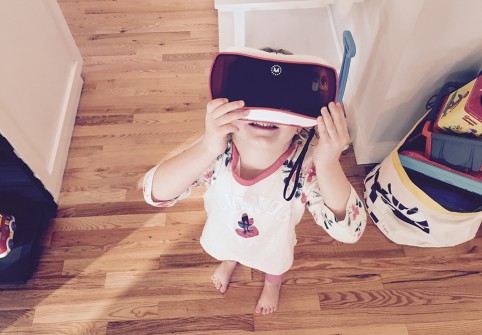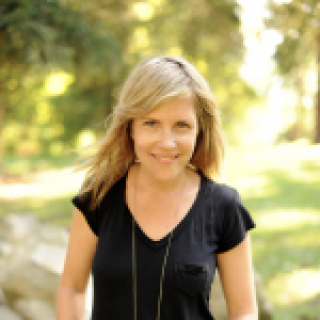
Here are some of my current parenting questions:
- Should I be using math flashcards with my 4-year-old?
- Am I just being lazy when I let my daughter watch YouTube videos while I attempt to do other things?
- Does my daughter’s preschool focus too much on play? Should she already know how to read and write?
- Should my 1-year-old learn how to code? (You read that right. I had the five second thought that my son should learn to code after I saw a tweet from Mark Zuckerberg about teaching kids to code early. He didn’t say they should learn at 15 months; my mind just went there.)
Since co-writing and publishing Smart Parents: Parenting for Powerful Learning, I’ve been busy talking about parenting, children and education. I am humbled by how much I don’t know (see above) and by how confused I am about what and how my kids should be learning. Here are a few of my observations from along the way.
Parenting 2.0
In the next five years (at least), parents will continue to wrestle with how much and what type of access kids should have to technology. Expect a further entanglement of our online and offline selves, to the point that our online presence may become more important. Indeed, it’s already happening; just listen to this Ted Radio Hour podcast on screen time.
As more of life moves online, teaching computer science, coding and digital literacy become increasingly important and valuable as economic and survival skills. Perhaps conversely, the more we’re online, the more we adults need to strengthen our children’s understanding of how to cultivate empathy and foster social and emotional learning skills.
So get ready, parents and adult guardians: Helping our kids balance the increasingly online aspects of life with their capacity to feel, love and create may be our most important job yet.

Educate yourself
I regular field questions from parents about the “dizzying array” of options for learning available for children. There are various types of schools with various names based on various learning movements and various philosophies. It’s no wonder parents are confused.
At the same time, for many students, there are far too few good options.
Since publishing Smart Parents, I've seen this issue more clearly.
On the one hand, I chat with parents about the many choices they have and the many decisions they have to make. I am one of them. I listen, I nod my head, I agree and provide insights based on my nearly two years of investigation and subsequent blog series about parenting for powerful learning.
On the other hand, I recognize that there are far too many parents and students left out of conversations around education. They have zero choices or only really bad ones.
So here’s your next job: Want what you want for your own kids to be available for everybody’s kids. Parent advocacy 2.0 means advocating for all kids.
Go help the neighbor’s kid, become a mentor, get involved in schools, be a voice for the voiceless. If you have power and privilege in this country, use it to help those who do not.
This doesn’t have to be overwhelming. It can be as simple as sharing the work of others doing equity work, or recognizing inequities and talking to your kids about them. How we teach our children matters. Big time. This work needs all of us.
Getting the word out
I recently spoke about Smart Parents with education advocate Dr. Will Deyamport of “The Dr. Will Show.” During our Google Hangout, we discussed the role parents play in their children’s education.
You can watch the full clip below but in a nutshell: We spoke about my kids, Getting Smart’s Generation DIY project and students who inspire me, including high school student Alex Angelo, who attends an online school so he can better pursue his passions.
We also discussed parenting and coding, freelancing, the “gig” economy and the importance of social and emotional learning.
Now it’s time for you to join the conversation. Share your experience encouraging powerful learning at home, at school and everywhere in between by using #SmartParents on Twitter and finding me at @belathram. If you have a story to share that’s longer than 140 characters, email editor@gettingsmart.com.











